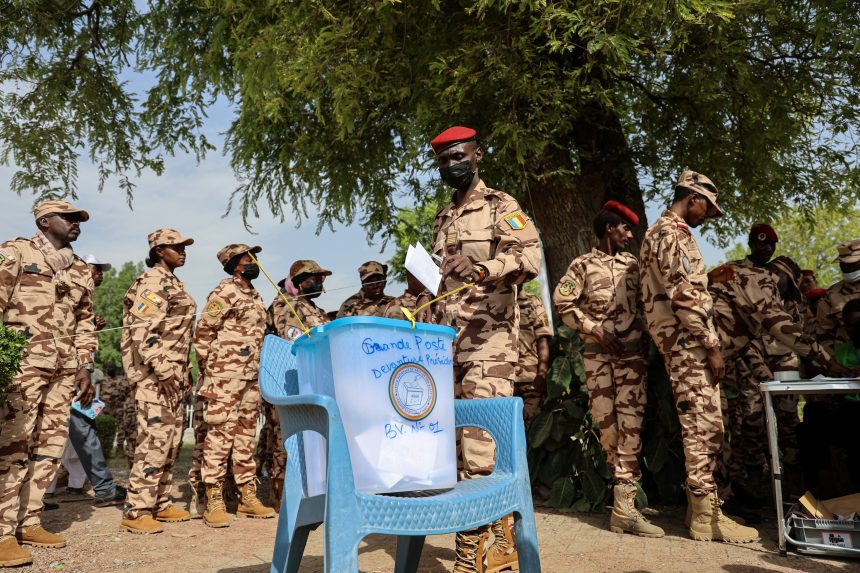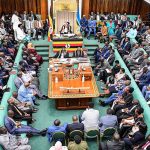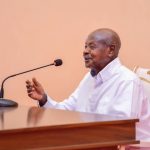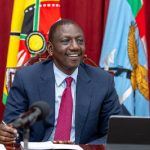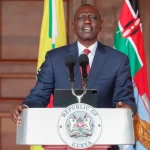Since April 2021, Mahamat Idriss Déby has led Chad as its transitional president inheriting the role after the battlefield death of his father, Idriss Déby, who had ruled for 30 years.
Despite his father’s long reign, Mahamat’s leadership comes with expectations of political change and stability in a nation marked by decades of conflict. His transition holds the key to either continuing past legacies or forging a new path for Chad’s future.
Déby has promised to bolster security, strengthen the rule of law and increase electricity production. But his chief opponent has been drawing larger-than-expected crowds on the campaign trail.

The vote coincides with a temporary withdrawal of US troops from Chad, an important Western ally in a region of West and Central Africa courted by Russia and wracked by jihadism.
Voter shot dead in ‘isolated incident’
While turnout seemed slow shortly after polls opened in the capital N’Djamena, it had picked up by mid-morning, according to reporters.

A man was shot dead Monday after voting by an attacker who did not have an electoral card and had been barred from voting, said electoral officials.
The unknown gunman opened fire indiscriminately, hitting a 65-year-old who had just cast his ballot in Moundou, said Ousmane Houzibe, head of the ANGE electoral body in the southern city.
The shooter was among a group of people demanding the right to vote in the election.
Houzibe, who described it as an isolated incident, said calm had returned but that the attackers had fled.
“Unidentified individuals burst into the voting station at Bellevue school, wanted to vote but not having voter cards, insisted,” Houzibe said.
“In the altercation, an unidentified individual drew his weapon and fired, the bullet hit a voter aged 65, who had just voted and who was leaving.
“He died on the spot,” Houzibe said, adding the aggressor wanted to “intimidate members of the polling station”.
Last Sahel country with substantial French military presence
Around 8.5 million people registered to vote in Monday’s election. Soldiers began early voting on Sunday.
Provisional results are expected by May 21 and final results by June 5. If no candidate wins more than 50% of the votes, a run-off will be held on June 22.
Since replacing his father at the helm of the oil-producing Central African country, Déby has remained close with former colonial power and longtime ally France.
While other junta-ruled Sahel countries including Mali, Burkina Faso and Niger have told Paris and other Western powers to withdraw and turned to Moscow for support, Chad remains the last Sahel state with a substantial French military presence.
The US, however, announced a temporary withdrawal of at least some troops last month, saying it would continue with a review of security operations after the election.
Opposition concerns
Monday’s vote pits Déby against his prime minister, Succès Masra, previously a political opponent who fled into exile in 2022 but was allowed back a year later. Also running are former prime minister Albert Pahimi Padacké and seven other candidates.
Yaya Dillo, an opposition politician who had been expected to run against Déby despite coming from the same clan, was shot and killed in the capital N’Djamena on February 28, the day the election date was announced.
Padacké has accused Masra of collaborating with Déby. But Masra has attracted large crowds to his own rallies.
Some opposition members and civil society groups have called for a boycott, citing concerns about possible vote-rigging. That has raised fears of potential violence.
“This presidential election is of capital importance for the country because an entire people aspires for change,” said Baniara Yoyana, a former minister and magistrate.
“The process must be conducted with transparency to avoid any risk of confrontation.”
One Déby supporter, however, said he expected no problems. “We want the election to go well and peacefully,” said Abdelkhader Sougui, a 28-year-old student.

